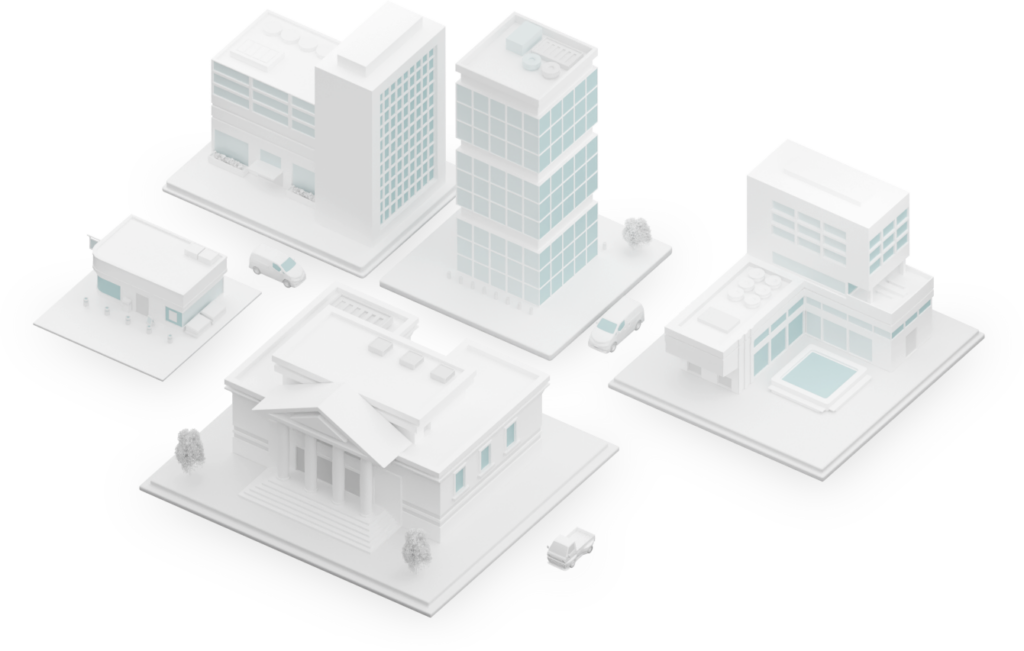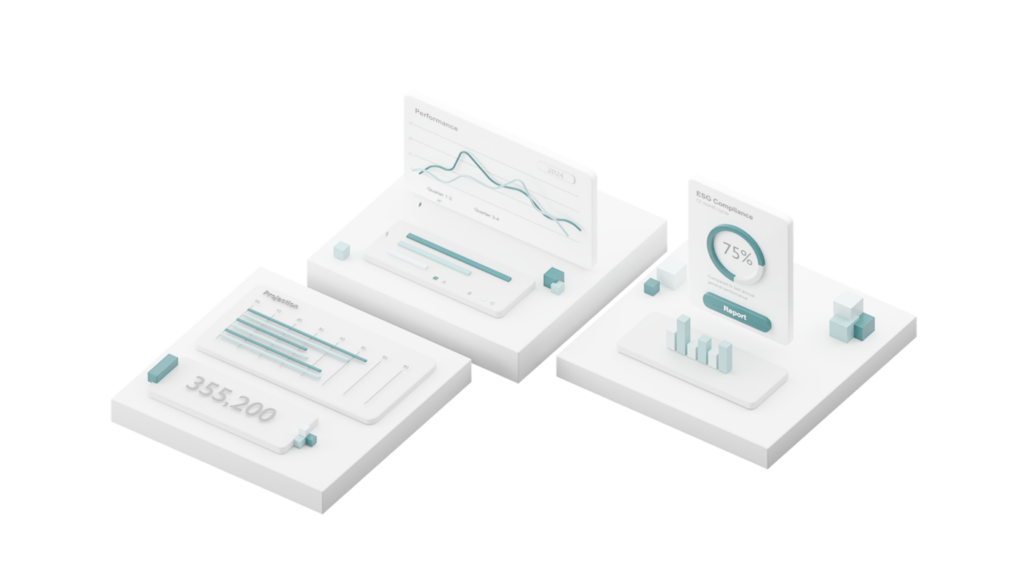One platform – full control
Automated, AI-powered. Compliant.
Bring all your data together, collaborate with teams and stakeholders, turn complexity into clarity: from risks and opportunities to sustainable intelligence.
ExploreAccurate and structured data management
Compliance and audit readiness
Automation and workflow governance
Strategic insights and KPI intelligence
Our platform offers:

Data collection and validation

Cross-framework disclosure mapping

Evidence tracing and audit trail creation

KPI definition, monitoring and analytics

Automated disclosure generation

API integration into existing systems
Why this is needed
01
Rapid growth
Non-financial reporting is expanding internationally and across all industries and sectors.
02
Comprehensive structures
The number of disclosures is increasing, adding complexity to reporting.
03
Updating tools
Manual spreadsheet-based reporting is no longer scalable, nor reliable.
04
Reliable workflow
Organisations require structured processes, traceable workflows and verifiable data models.

Built for different types of organisations
Enterprises with complex integrations, SMEs with focused workflows, financial institutions with portfolio visibility, advisory firms with due diligence requirements — our platform adapts to different levels of maturity, scale and operating reality.
One infrastructure, many configurations.
Explore

Solutions and products
Manage non-financial data end-to-end: from data requests, to classification, to KPI tracking, to reporting outputs — all supported by evidence, cross-mapping logic and version authority.
Create regulatory-aligned disclosures, dashboards, assurance-ready evidence files and strategic intelligence from one unified data layer.
ExploreTailored experience of unique products and solutions
Exclusively built for special customers
Build your product
Configure features, workflows, and modules to meet regulatory obligations and operational needs.
KPIs
Define and monitor key performance and compliance indicators to track progress and support decision-making.
Manage data
Centralise, structure, and securely manage compliance data for efficient analysis, traceability, and audit readiness.
Compliance
Generate tailored, regulation-aligned reports and disclosures — built to support evolving standards and requirements.
Automated multi-framework disclosure mapping
We provide an AI-assisted mapping engine that links unstructured documents to reporting frameworks such as GRI (~500 disclosures) and ESRS (~1,200 disclosures).
The engine is modular, API-first and multi-cloud. It supports multi-language inputs, temporal separation (company + year + quarter) and large document splitting without loss of sentence integrity.
Explore
Who uses it
1. Enterprises

2. Financial institutions

3. Sustainability teams

4. Consulting firms

5. Auditors & Assurance partners

6. Ecosystem platforms & Marketplaces

Our purpose
We believe sustainability data management must be accurate, verifiable and efficient. We build software that improves evidence-based decision-making and accelerates impact.


“We are not only building tools. We are building trust in data.”
Anna Shpak
(Founder, CEO)
We believe sustainability data management must be accurate, verifiable and efficient. We build software that improves evidence-based decision-making and accelerates impact.
“We are not only building tools. We are building trust in data.”
Anna Shpak
(Founder, CEO)
Frequently Asked Questions
What is non-financial data?
Non-financial data refers to information that is not part of financial statements, but still influences business performance, resilience, access to capital and long-term value. This includes sustainability metrics, impact results, governance indicators, social factors, supply chain evidence, and risk-related information.
What is non-financial reporting software?
Non-financial reporting software is a platform that collects, structures, validates and manages non-financial data. It enables auditability, traceability, evidence management and alignment with regulatory and sustainability disclosure frameworks.
What is impact measurement?
Impact measurement is the process of assessing how an organisation’s activities affect people, society, the environment or the economy. Impact metrics are used to track real outcomes, not only policies or intentions.
What is due diligence in sustainability?
Sustainability due diligence is the structured analysis of potential or actual risks, harms, or negative outcomes across operations, supply chains, and business relationships. It focuses on identifying, preventing, mitigating and tracking sustainability-related risks.
What is double materiality?
Double materiality evaluates both financial materiality (how sustainability issues affect enterprise value) and impact materiality (how the organisation affects society and the environment). Both perspectives must be assessed for modern regulatory reporting.
What is ESG reporting software?
ESG reporting software is a specialised type of non-financial reporting platform that focuses on environmental, social and governance metrics. it supports data structure, KPI tracking, evidence management and the publication of ESG disclosures.
What is cross-framework mapping?
Cross-framework mapping connects one dataset to multiple reporting standards. Data can be collected once and automatically linked to different frameworks, which removes duplication and accelerates reporting.
Which standards does Generation Impact Global support?
The platform supports major sustainability and regulatory frameworks including ESRS, GRI, SFDR, ISSB/IFRS, OECD due diligence and the UN Sustainable Development Goals.


